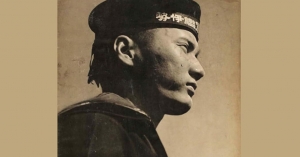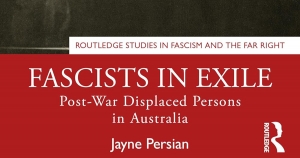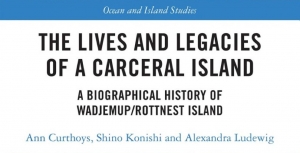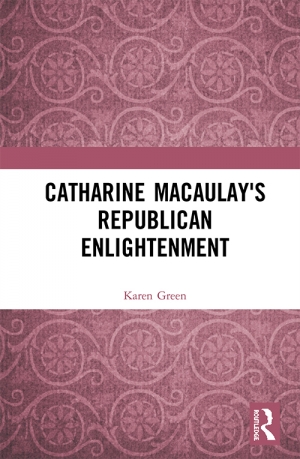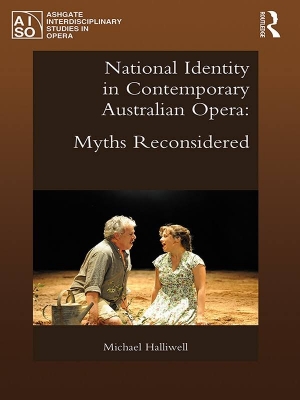Routledge
Iva Glisic reviews ‘Soviet Socialist Realism and Art in the Asia-Pacific’ by Alison Carroll
From bountiful feasts on collective farms to choreographed parades in Red Square, Soviet Socialist Realism painted a world of triumphant spectacle. In the eyes of Western critics, however, these images were as bland as they were removed from Soviet reality. As a result, Socialist Realism hovered on the margins of art history almost until the end of the twentieth century, when a series of studies in the early 1990s moved away from the reductive assessment of the movement as vulgar propaganda, revealing a complex and intriguing aesthetic reasoning within its production. A subsequent wave of further research would foreground the influence of this artistic production outside the Soviet Union. With Soviet Socialist Realism and Art in the Asia-Pacific, Alison Carroll aligns with efforts to examine the impact of the movement in a global context, placing focus on a region that certainly merits greater attention.
... (read more)Robin Prior reviews ‘Fascists in Exile: Post-war displaced persons in Australia’ by Jayne Persian
This important and arresting book chronicles the way in which Australia, from 1947 to 1952, imported some 170,000 displaced persons from Europe, a reasonable number of whom were fascists. The striking thing that Jayne Persian (a historian at the University of Southern Queensland) lays bare is the insouciance with which this policy was adopted and the way in which all political parties fell over themselves with enthusiasm for it, though all the main actors were well aware of the influence of fascism among this cohort.
... (read more)Georgina Arnott reviews 'The Lives and Legacies of a Carceral Island: A biographical history of Wadjemup/Rottnest Island' by Ann Curthoys, Shino Konishi, and Alexandra Ludewig
Islands, as recent histories of immigration detention and quarantine show, offer unique things to human societies. Rimmed by a watery bulwark, they have more surveyable borders than do mainlands. Their status as sublands suggest that they exist outside the conventions and temporal dimensions of larger, mainland societies. What happens on an island stays on an island; at least, island prison warders and sojourners imagined this to be the case.
... (read more)Myra Roper reviews 'The Performing Arts in Contemporary China' by Colin Mackerras
Here is all you ever wanted to know about Chinese theatre and didn’t know whom to ask! Who better anywhere to ask than Professor Colin Mackerras? A distinguished sinologist, Chairman of the School of Modem Asian Studies at Griffith University, he speaks Chinese fluently, taught English in Shanghai from 1964–66, and has visited China regularly since then totting up a remarkable miscellany of visits – to theatres, academies, conservatoria, cinemas, commune, and factory performances and talks with dramatists, critics, composers and ‘the masses’.
... (read more)David Mason reviews 'How to Read a Poem: Seven steps' by Thomas H. Ford
In my thirty years as an academic, the greatest joy and puzzlement I had was in teaching poetry. I agree with T.S. Eliot that ‘genuine poetry can communicate before it is understood’. Our best teaching often involves what we do not fully understand. The scholar D.S. Carne-Ross once argued that, upon hearing poetry spoken in an unfamiliar language, you can tell it is poetry, the language of poetry, which is other than what I do in writing this review. Anyone faced with the problem of teaching poetry in an academic setting will realise that part of the problem is the academic setting itself. Poetry has thrived for millennia everywhere on earth without the benefit of professors, classrooms, and theories of reading. How, then, might we teach it?
... (read more)Jeffrey Minson reviews 'Foucault and Literature: Towards a genealogy of writing' by Simon During
‘At a crucial moment in my career, I was fortunate to have had the opportunity to take heart from the humbling serenity and unaffected craftsmanship of Michel Foucault, in what I was not to know were his last years.’ Nothing could be further from the spirit of Foucault and Literature than this tribute by eminent historian Peter Brown. During’s measure of Foucault’s contribution to literary studies is the extent to which in his writings, as in his person, ‘academic skills’ are reconciled with a ‘transgressive’ political radicalism in such a way as ‘to break down the limits of academic professionalism’. No doubt the passionate, politically engaged reflection and teaching envisaged in During’s (post-) Foucauldian programme for literary studies would leave intact the sabbatical leave arrangements upon which Brown’s and Foucault’s collaboration would have depended.
... (read more)Alan Dilnot reviews 'Dickens and the Bible: "What providence meant"' by Jennifer Gribble
It is well known that Charles Dickens draws an analogy between the novelist as creator and the Creator of the cosmos: ‘I think the business of art is to lay all [the] ground carefully, but with the care that conceals itself – to show, by a backward light, what everything has been working to – but only to suggest, until the fulfilment comes. These are the ways of Providence, of which ways, all art is but a little imitation.’ However, it is not generally recognised that Dickens supported this analogy with a deep knowledge of the Bible. Instead, the thinking that permeates his works is often seen as a facet of secular humanism. John Ruskin, for example, commented that for Dickens Christmas meant no more than ‘mistletoe and pudding – neither resurrection from the dead, nor rising of new stars, nor teaching of wise men, nor shepherds’.
... (read more)Janna Thompson reviews 'Catharine Macaulay’s Republican Enlightenment' by Karen Green
Catharine Macaulay (1731–91), a celebrated historian in England, was acquainted with leading political figures and intellectuals in Britain, America, and France. American revolutionaries were influenced by her republican principles, and the feminist pioneer Mary Wollstonecraft was inspired by her views. Today she is a largely forgotten figure, at most a footnote in histories of the period and not regarded as significant enough to be included in the Enlightenment pantheon among the luminaries she supported or criticised. Melbourne philosopher Karen Green claims that the neglect of Macaulay is not only an injustice to a historian and philosopher whose works deserve attention. She regards her as an important advocate of a form of Enlightenment thought that cannot be reduced to an apology for the possessive individualism of capitalist society.
... (read more)Peter Tregear reviews 'National Identity in Contemporary Australian Opera' by Michael Halliwell
Just as we are unlikely today to think of South Wales when in New South Wales, nor does the existence of the Sydney Opera House does not of itself draw our collective attention towards opera. It is a structure more to be seen than heard; its professed reason for ...
... (read more)In recent times the figure of the zombie has pervaded modern culture. Despite their origins as macabre creatures from Haitian myths, and then their modern cultural origins in B-grade horror films, zombies have established themselves as an important element of modern mythology. Jennifer Rutherford’s book aims to explore the reasons for our society’s obsession with these decaying entities.
... (read more)
